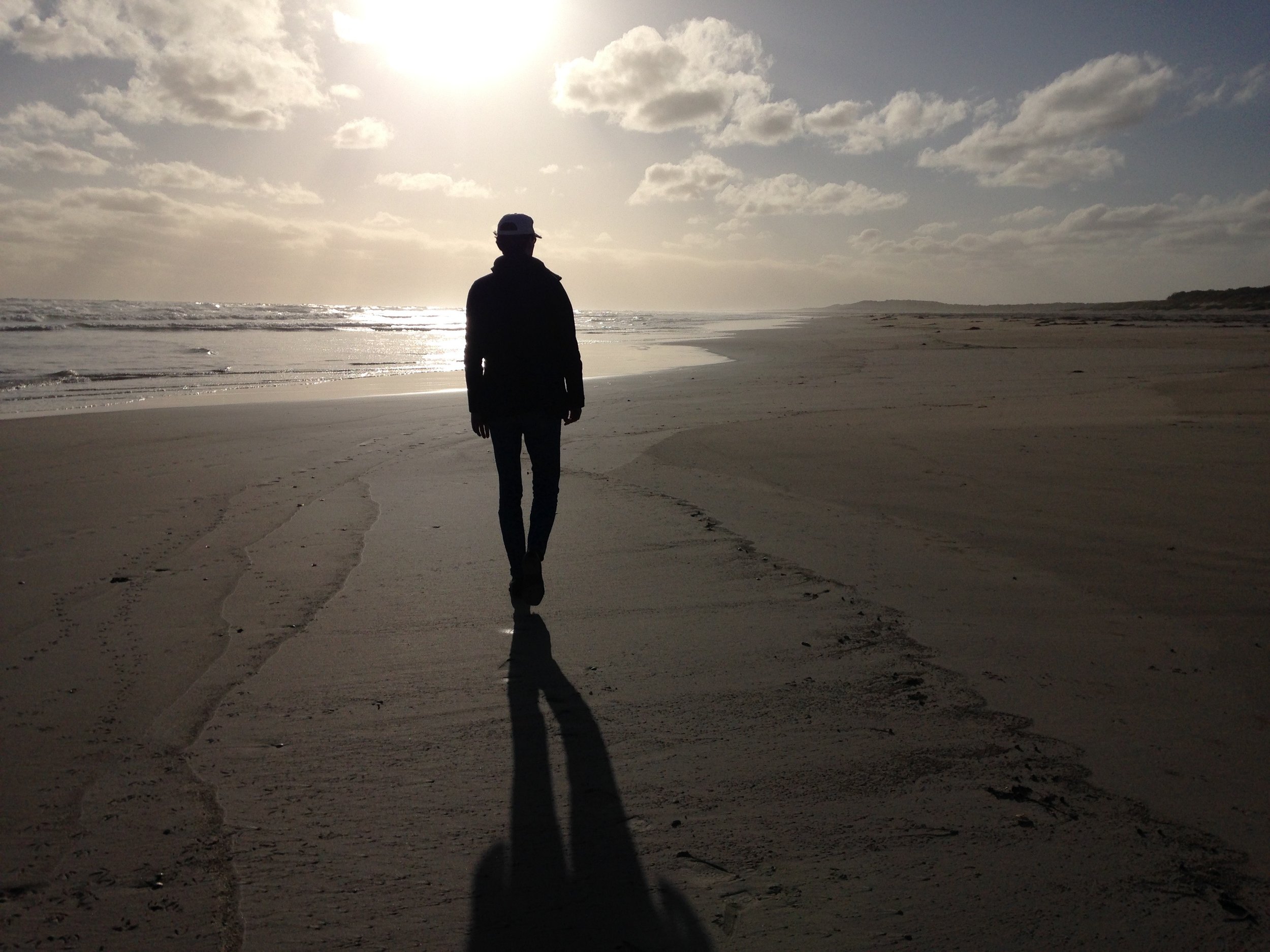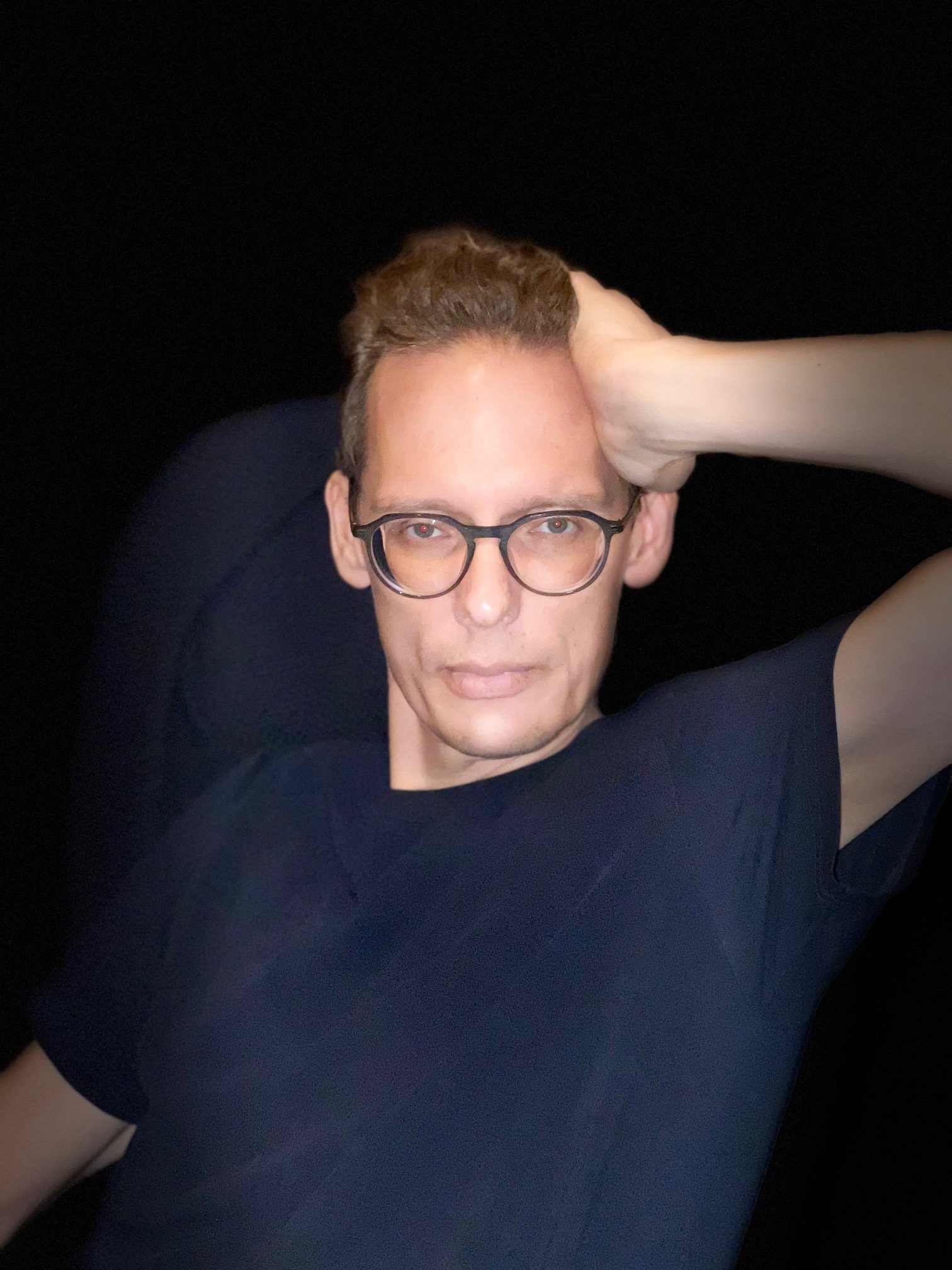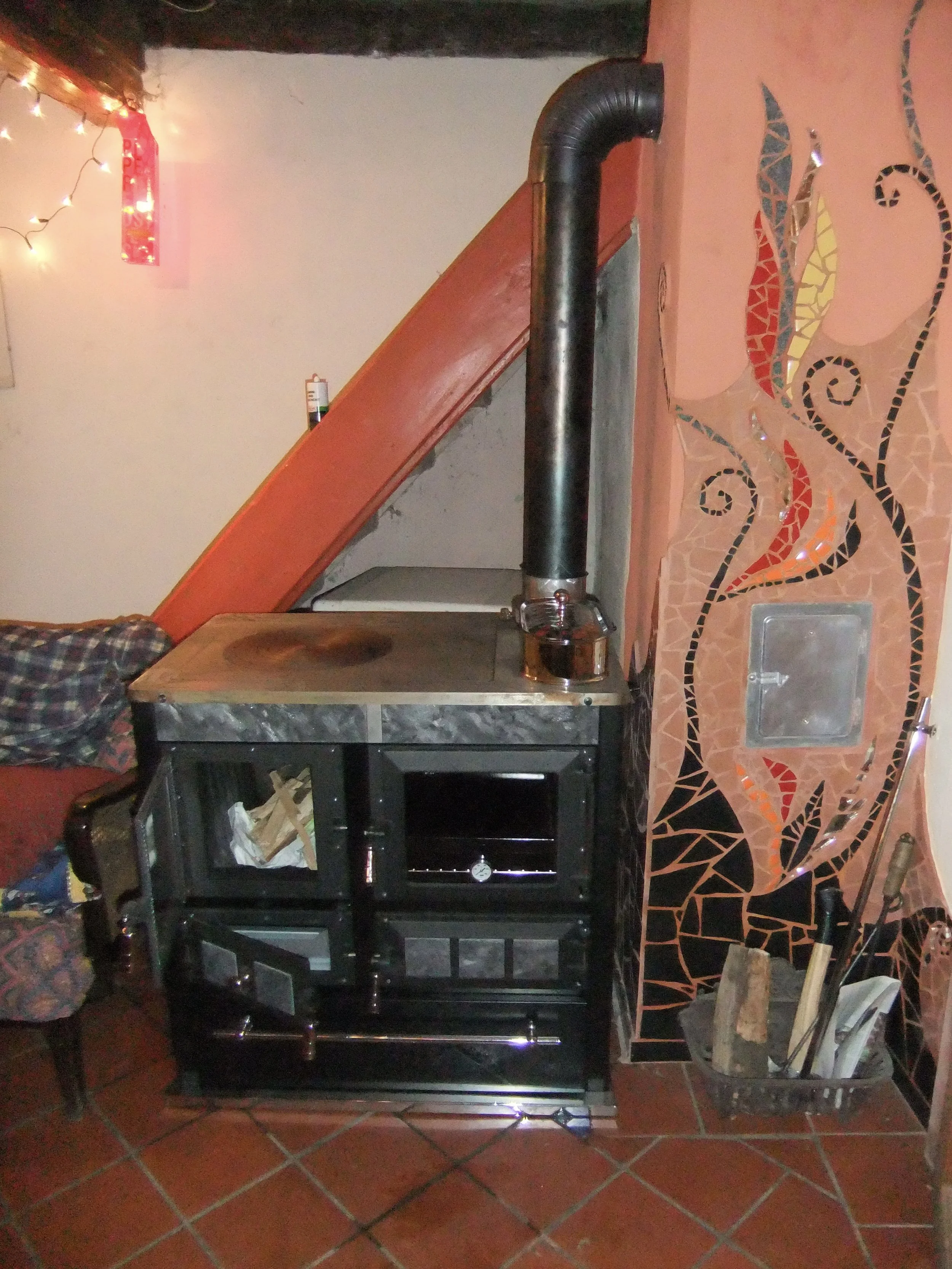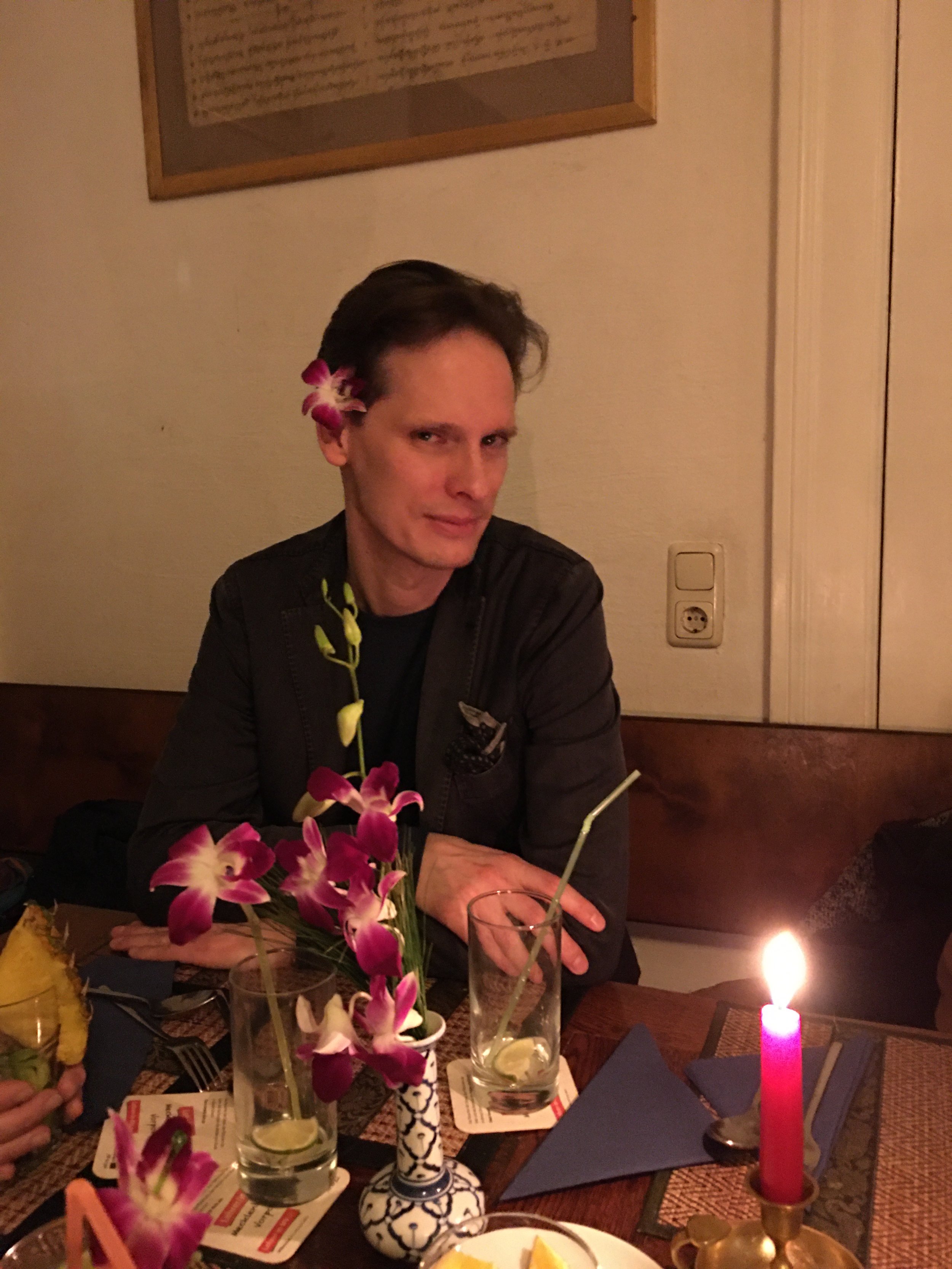Marc Rehmsmeier Obituary
Marc Rehmsmeier 04.05.1971 – 29.04.2022. By Leonie Ringrose
Marc Rehmsmeier died in hospital in Berlin on 29.04.2022, aged 50. Marc was diagnosed with metastatic colorectal cancer in July 2020. After a long and all - consuming fight in which we hoped to turn it around, he let go of this life, reluctantly and with me beside him. He was my beloved partner, collaborator and best friend, for 24 years. We got married in hospital on 31st March 2022 and he never made it home. Marc will be cremated privately in May and the funeral/ memorial will take place in Berlin on July 6th, 2022. All who knew him, and friends of Leonie, are welcome. Details can be found here.
Here I share some of my personal thoughts and memories.
Marc, Wild Dog beach, Nelson, Australia, Feb 2016.
The early years 1997 – 2000
I first met Marc when we were both PhD students, him at DKFZ Heidelberg, me at EMBL Heidelberg. I started giving regular evening classes in „English for Scientists“ at the DKFZ in autumn 1997. Marc, a computer scientist and bioinformatician, was in the group of PhD students who took part. The first course came to an end in December and I had already fallen hard for Marc but had not made enough progress letting him know. I called up the DKFZ and offered an advanced course (“Writing a Scientific Paper”) just to get to see him again. The DKFZ accepted and I then had to cook up this course, having written one paper in my life. It worked, I got together with Marc in early 1998, and the course is still running in different versions at the DKFZ and HU Berlin. This was just the first of many grandiose gestures that would characterise our journey together.
At the time, I was living in an old farmhouse about 35 km from Heidelberg in a little village called Gammelsbach. I had bought the house in 1992 as a renovation project, and had spent happy hours when not in the lab, ripping down walls, putting up tiles, stripping wood and laying floors. Marc would often visit at weekends, and we would make fires, cook, play with my cat, Sam, and read comic books together, surrounded by the chaos of ongoing renovation work. From his flat in Heidelberg we enjoyed Handschuhsheim, the Philosophenweg and the Altstadt Heidelberg. It was with very mixed feelings that I heard in autumn 1998 that my application for a post doc fellowship to join a lab in Montpellier, was successful. I moved there in January 1999 and put the farmhouse on the market, squeezing all my furniture into a flat half the size in Montpellier. I stayed two years and Marc and I began the first of our many experiments in long-distance co-existance.
Return to Gammelsbach 2001
Luckily nobody bought the farmhouse. Strangely enough a crooked house with gaps around the door frames, no central heating and holes in the roof was not the most desirable property on the German market. Thank god for that. Marc and I were overjoyed when I got a second post doc position back in Heidelberg, starting January 2001. In another grandiose gesture, he drove non- stop down to Montpellier in a hired van to pick me up and bring all my stuff back. I will never forget arriving back in the farmhouse after two years, driving with Marc to the next town with all my furniture in the van to get a pizza, and the joy of eating it in front of the fire in the empty kitchen with Marc and Sam the cat. I can’t remember what was on the pizza but I do remember us being like two little dogs, overcome with happiness at our good fortune.
This was the start of what I look back on as the serious transformation of the house and garden. Alone, I had tackled projects that were within my abilities, and did them mostly myself. Marc had the visionary magic to see beyond the immediately possible, and envisage grandiose changes. (That word again. It’s just so appropriate). With his help, and with our friend David, we started some huge and splendid projects, for example restructuring the garden, which had been little more than a hill covered in nettles, into a fairytale palace of dry stone walls and terraces made of stones we found underground. What can I say? It was grandiose.
Marc and Leo in Gammelsbach garden. ca. 2003.
Collaborations 2003 onwards
In 2002, Marc moved to Bielefeld University, first for a post doc and then as a junior group leader. Our science careers wove a thread through our lives together, leading to repeated separations, new places, risks and challenges. Actually, after the Montpellier years in which we were over 1000 km apart, Bielefeld – Heidelberg didn’t seem like that much of a stretch. It was during this time that we had some of our most fruitful scientific collaborations. The computational (Marc) and experimental (me) combination was, er… grandiose. Indeed the algorithm that formed the core of our most highly cited joint paper was written by Marc on the back of an envelope over breakfast on the kitchen table in Gammelsbach.
Vienna, Bergen, 2006-2015. The longest distance yet
In 2006, while Marc was in Bielefeld, I got a position as a Junior group leader in Vienna. Time to move again. This time we were under no illusions: the house was with us for good and there was no question of trying to sell it. Marc’s group leader position in Bielefeld came to an end in 2008. This was the first of several times that we were to be disappointed by the gap between the promise of help with dual careers, and the reality of institutes not delivering on that promise at a level appropriate for both of us. During our search for dual positions, at least four institutions across Europe missed out on the chance to hire two brilliant faculty members with complementary expertise and tremendous synergy, at equivalent and appropriate levels. This had consequences for our motivation in science but not for our commitment to each other. Marc moved to Vienna as a staff scientist in 2008 and widened his job search. This resulted in a faculty position at the University of Bergen, Norway in 2011, from which he was promoted to full professor in February 2013.
Marc and Leo, Bergen, ca. 2013
Improvisation theatre 2010-present. “Yes! And…”
As well as being our longest distance (Vienna – Bergen was two flights), this was also a time of new discoveries. As well as the Ottolenghi cookbooks, one of the most transformative was the big and wonderful world of improvisation theatre. Through Georg Bauer at the Vienna Biocentre we discovered the power of “Yes! And..” and so many other magical things. Taking risks, stepping out of the comfort zone, and letting go of your own idea, to let your partner shine. What could be more grandiose? In Vienna we trained with Georg and Quintessenz, in Berlin with the Gorillas and Comedy Café, and later with Thomas Chemnitz and just the two of us. We visited the iO theatre in Chicago in 2015 to see where it all started. Whether we were actively training or not, the improv spirit became a deeply ingrained part of our lives, every day, right up to the end of Marc’s life.
Berlin 2015- 2022
My position in Vienna ended in 2014 and our negotiations and my applications for a position for me in Bergen, ongoing from 2012 – 2014, were unsuccessful. After a glorious (perhaps even grandiose) year of unemployment, I accepted a professorship at the Humboldt University Berlin in 2015. Negotiations to hire Marc at HU Berlin at professor or even group leader level were unsuccessful. He gave up his professorship in Bergen to join me as a permanent staff scientist and we started together in Berlin in 2015.
Let me resist the temptation to drift into regrets about what might have been. After all, I want to write about what was, and what is, which is wonderful enough. Let’s go back to the farmhouse. All through the years in Vienna and Bergen, we had been gradually upgrading the house to suit our increasing taste for comfort as we got older, and visiting whenever possible. Not keen on central heating, we instead installed some brilliant new wood burning stoves, new doors and windows, and finally a new roof, which expanded the house by two floors. One of these we equipped as a state of the art cinema. Among our favourite films, which look great on the big screen, are Ratatouille and Wall-E. Incidentally the roof was partly paid for by income from the course “How to Write a Scientific Paper”, still running at the DKFZ Heidelberg. Fitting, somehow. About 18 months ago we finally got hot water in the kitchen and a dishwasher. The first time we ran it, we were like those little dogs again. We sat in the kitchen watching the display, which was, incredibly to our minds, projected on the floor.
Teaching and working together 2015- 2022
Professionally we continued to collaborate. We co supervised PhD students, and Marc was instrumental in the founding spirit and the hard work of proposal writing for the interdisciplinary EU project “PEP-NET” which was funded with 4 million euros in 2018. We taught courses together at HU Berlin. In the days before Corona we used games and ideas from improvisation theatre to teach our classes on scientific presentation and writing. Once online teaching became the norm, we co – taught a course in Quantitative Molecular Biology for the new Masters program starting November 2021. Both of these courses were nominated by students for teaching prizes. The Scientific writing and presentation course won the Life Sciences Faculty prize in 2019. The Quantitative Molecular Biology Course was nominated and shortlisted for the Humboldt University good teaching prize in 2022.
What was it about our teaching that students appreciated? Like so many things we did together, the end product was the result of Marc’s bold vision and my being inspired by that (with a lot of hard work from both of us as well). When he was in Bergen Marc started researching literature on effective university teaching practices. He was excited to discover a book on the concept of “constructive alignment”, which is relatively well known in the English speaking academic world but very little known elsewhere. He shared this with me and we both started trying it out. I think in retrospect, that this concept is almost as transformative as the ideas of improvisation theatre. There’s a lot of theory but the very central concept is that the whole thing is about putting the student, not the teacher, in the centre of things. Sounds simple, doesn’t it? It works (of course it does), and it is immensely powerful. A message to any students at HU who have known me: By knowing my teaching practices, you also got to know Marc, whether he taught you directly or not. I am so glad you did.
Cancer 2020 - 2022
Marc was diagnosed with metastatic colorectal cancer in July 2020. Our lives became almost completely cancer centric as we dug into the science, became experts through reading and research and tackled it head on. We did genome wide analysis on biopsies with a private company and knew every mutation and every RNA transcript level. We took on the Berlin medical hierarchy single (or double) handed and used factual data-based arguments to persuade doctors to give Marc targeted therapies (immune checkpoint inhibition and later, DNA repair inhibitors) that they would not otherwise have done. The targeted therapy helped and things went well, until they didn’t. It was good for us to be deeply engaged in the facts, allowing us to be relentlessly vigilant throughout, to question information and decisions when we weren’t convinced, and to steer a path through this experience, supporting each other both scientifically and psychologically throughout.
Until recently it was still possible that Marc would recover sufficiently to get more chemotherapy and continue his therapy with DNA repair inhibitors. Marc was treated at the Charité hospital in Berlin, and we are indebted to the excellent work of Dr. Christian Oberender who accompanied Marc through his outpatient treatment since 2020, was open to molecular biology, drew our attention to the potential for immune checkpoint inhibition, and constantly supported us in our requests for data -driven therapies. We also thank Prof. Sebastian Stintzing for being open to discussion and supporting our requests for targeted therapies.
Last weeks, 28th March – 29th April 2022
Marc went into hospital on the acute oncology ward of the Charité (Mitte, Berlin) on 28th March 2022. We got married there on 31st March. He never made it home. On 12th April he was transferred to the Palliativstation 55, Charité Campus Virchow, Berlin. The staff and doctors at the Palliativstation were outstanding, on both the medical and human levels. We both felt tremendously well looked after. Special thanks from me and Marc go to Dr. Ahn, Dr. Geus and Dr. Haubner, and all of the carers and other staff at Station 55 who were so kind and funny right up to the end. It was brilliant to see how people took Marc to their hearts and appreciated his special brand of dry humour, his incisive intelligence and his essential kindness. We were known there as the honeymoon couple, because we shared his bed whenever I was there. They were amazed at how we both squeezed in (he was quite a tall chap!) but for us there was no alternative.
I was with Marc continuously throughout his last three days and nights. I sang him songs all afternoon on the day before he died (from Muppet Show, via Elvis, to Tom waits and Louis Armstrong, to improvised creations) knowing he could hear me but could not speak. My last grandiose gesture for my beloved best friend. He died at 10.45 a.m. on Friday 29th April 2022.
Funeral and memorial
Marc will be cremated privately in the week of 10th May 2022. His memorial will take place in Berlin in early July 2022. His ashes will finally come to rest in the Friedwald Michelstadt, near to our farmhouse.
We would appreciate donations if you wish, to the Palliativverein of the „Palliativstation 55“ of the Charité hospital in Berlin, to contribute to their outstanding work in taking care of patients and their families as human beings. Please mention Marc Rehmsmeier if you donate.
Verein zur Förderung der Palliativmedizin am Campus Virchow-Klinikum e.V.
IBAN: DE24 1001 0010 0521 6311 03
BIC (SWIFT): PBNKDEFF
Marc and Leo, Wild Dog beach, Nelson, Australia. Feb. 2016.
Marc, Gammelsbach, December 2021
Marc in the Gammelsbach kitchen, ca. 1999
Marc and Leo, Austrian Alps, ca. 2003
Marc in Gammelsbach garden, ca. 2002
This is the wall he built, that started everything.
The PRE prediction algorithm, ca. 2002.
Marc at Bergen Harbour, ca. 2012
Marc and Leo, iO theatre Chicago, July 2015
A new stove, ca. 2016
That incredible dishwasher…. 2020
Marc at dinner during the PEP-NET training course, Berlin, 2019.
Our hospital wedding, 31.03.2022
Station 55, Tuesday afternoon. Photo, Marc Rehmsmeier.
















